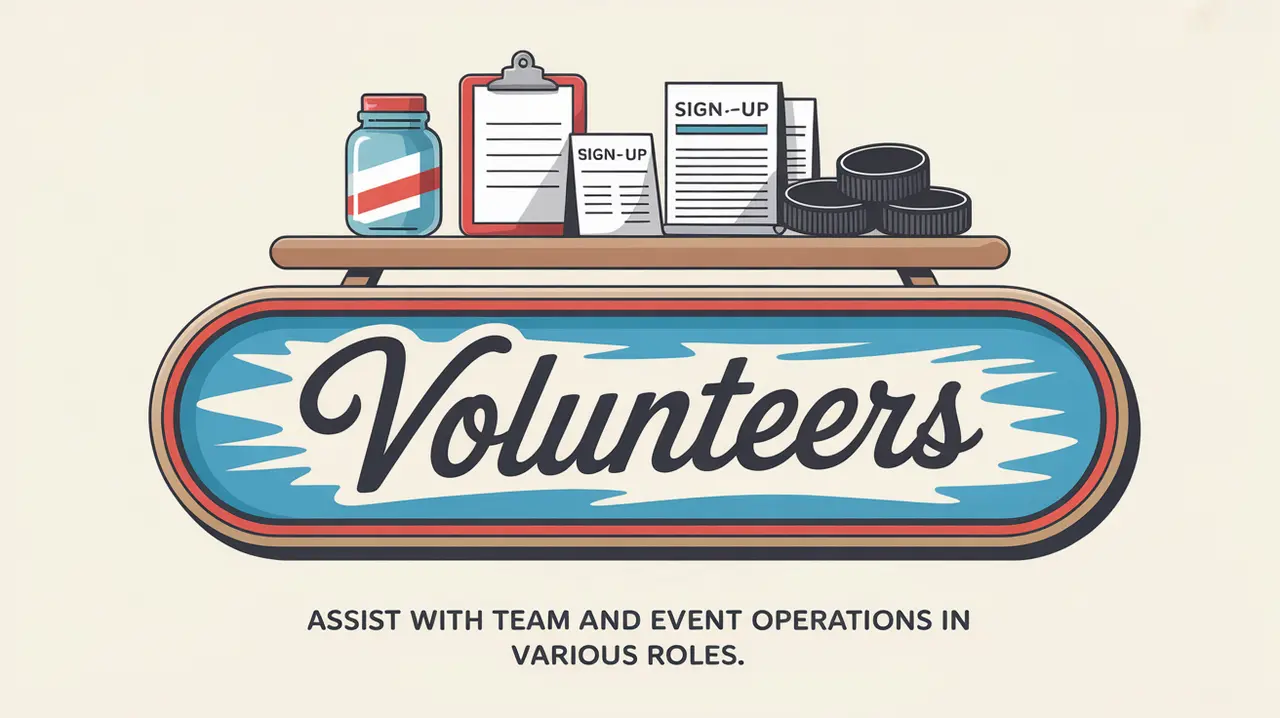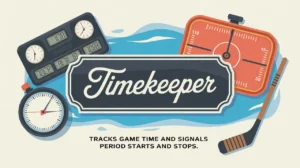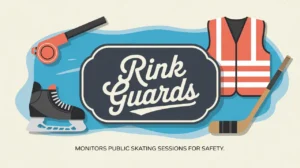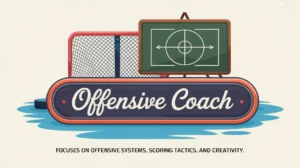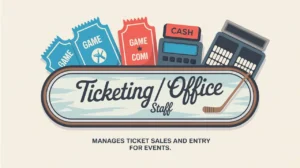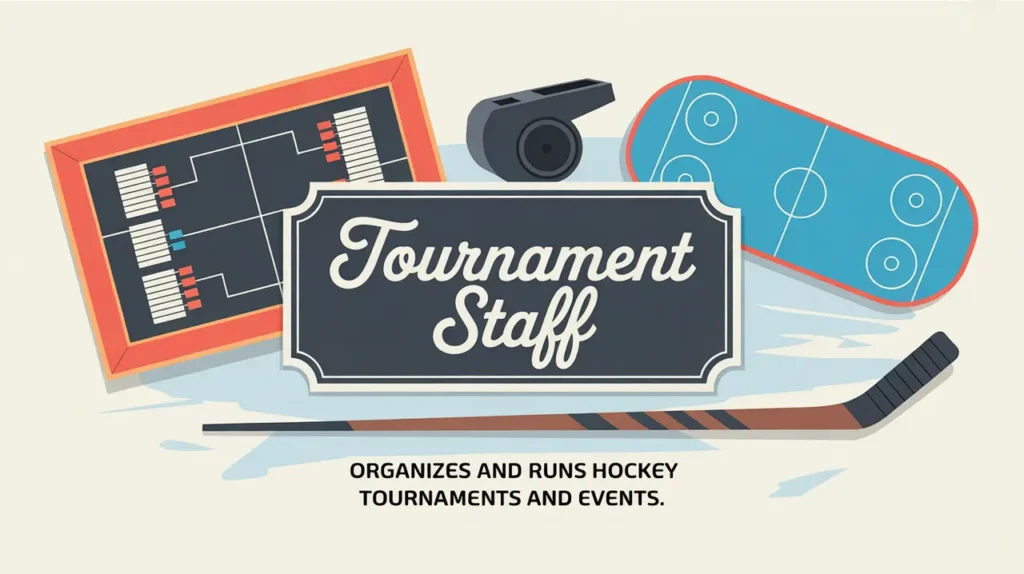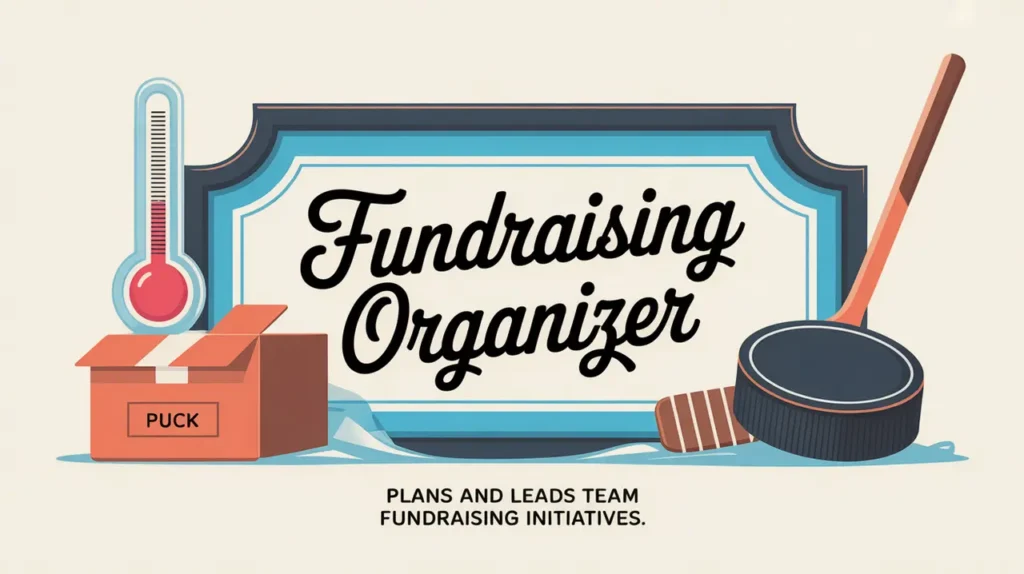Jim’s Intro to the Volunteers
Hi folks, Jim here, the only commentator who once signed up to volunteer for “just one hour” at a hockey event and somehow ended up running for office.
What are volunteers?
Volunteers are individuals (often parents, family members, or community supporters) who donate their time and skills to help teams, leagues, and facilities run smoothly. They fill countless roles, from staffing tables and organizing events to helping with logistics, communications, and operations. Without volunteers, most amateur hockey would grind to a halt.
How does it work?
Volunteers support the hockey ecosystem through task-based help, event participation, and behind-the-scenes organization:
Event and Game-Day Support
- Volunteers run scoreboards, manage penalty boxes, sell tickets, work concessions, or handle music, depending on the rink’s needs.
Administrative Assistance
- They help with registration, scheduling, communications, and paperwork, often working closely with team managers or registrars.
Fundraising and Booster Efforts
- Volunteers staff tables, solicit donations, run raffles, or help organize fundraisers, supporting booster clubs and team budgets.
Logistics and Setup
- From decorating for tournaments to setting up benches or cleaning up after events, volunteers handle the countless jobs that make the big events work.
Special Skills and Services
- Some volunteers offer professional skills like photography, videography, marketing, or medical assistance, enhancing the program’s capacity without extra cost.
Common Situations Involving Volunteers
- Tournaments: Working shifts at multiple stations to keep events running.
- Season Kickoffs: Helping with registration, equipment checks, and orientation.
- Fundraisers: Staffing sales tables or coordinating activities.
- Game Operations: Filling critical roles like scorekeeping or penalty box management.
- Community Events: Representing the team at fairs or outreach programs.
How do you make good decisions with it?
Good volunteer work depends on clear expectations, reliability, and communication.
- Know Your Role: Clarity prevents confusion and overlap.
- Show Up on Time: Reliability is gold in volunteer settings.
- Ask Questions: It’s better to clarify than guess during busy events.
- Support the Team, Not Just Your Player: A collective mindset makes everything smoother.
- Communicate Changes Early: If you can’t make a shift, let someone know.
How do you master it?
Mastering the volunteer role isn’t about perfection. It’s about showing up consistently, being adaptable, and working well with others. The best volunteers bring positive energy and reliability, making everyone else’s job easier.
What does it look like when done right?
A great volunteer group makes the entire operation feel effortless. Tournaments run on time, concession lines move, registration flows, and the community feels involved and proud.
Commentator’s Corner
Jim’s Take
Volunteers are the glue that holds the whole operation together. Without them, you’d have empty penalty boxes, unsold coffee, and scoreboards stuck at 0–0.
Parent Tip
Find a role that fits your skills and schedule. All contributions add up.
Player Tip
Recognize the volunteers. A smile or thank you is a simple way to show respect.
A Final Thought
Volunteers are the lifeblood of community hockey, blending time, energy, and generosity to keep the game vibrant. When mastered, the role combines commitment, adaptability, and teamwork, turning ordinary seasons into thriving communities.

